 W
WSylviane Agacinski-Jospin is a French philosopher, feminist, author, professor at the École des hautes études en sciences sociales (EHESS), and wife of Lionel Jospin, former Prime Minister of France.
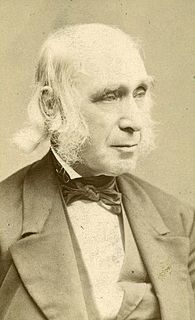 W
WAmos Bronson Alcott was an American teacher, writer, philosopher, and reformer. As an educator, Alcott pioneered new ways of interacting with young students, focusing on a conversational style, and avoided traditional punishment. He hoped to perfect the human spirit and, to that end, advocated a plant-based diet. He was also an abolitionist and an advocate for women's rights.
 W
WElse Margarete Barth was a Norwegian philosopher. She was a professor of analytic philosophy at the University of Groningen. She was a fellow of the Norwegian Academy of Science and Letters. She was elected a member of the Royal Netherlands Academy of Arts and Sciences in 1978.
 W
WFrançoise Elvina Baylis is a Canadian bioethicist whose work is at the intersection of applied ethics, health policy, and practice. The focus of her research is on issues of women's health and assisted reproductive technologies, but her research and publication record also extend to such topics as research involving humans, gene editing, novel genetic technologies, public health, the role of bioethics consultants, and neuroethics. Baylis' interest in the impact of bioethics on health and public policy as well as her commitment to citizen engagement and participatory democracy sees her engage with print, radio, television, and other online publications.
 W
WSimone Lucie Ernestine Marie Bertrand de Beauvoir French: [simɔn də bovwaʁ] (listen), 9 January 1908 – 14 April 1986) was a French writer, intellectual, existentialist philosopher, political activist, feminist and social theorist. Though she did not consider herself a philosopher, she had a significant influence on both feminist existentialism and feminist theory.
 W
WKathryn Sophia Belle, formerly known as Kathryn T. Gines, is an American philosopher. She is Associate Professor of Philosophy at Pennsylvania State University. Much of her work has focused on increasing diversity within philosophy, and she is the founding director of the Collegium of Black Women Philosophers.
 W
WTina Fernandes Botts is an American assistant professor of philosophy at California State University, Fresno. She is known for her work in legal hermeneutics, intersectionality, feminist philosophy, and philosophy of race. She is the former chair of the American Philosophical Association's Committee on the Status of Black Philosophers (2013-2016).
 W
WSamantha Brennan is a British-born philosopher and scholar of women's studies who is currently dean of the College of Arts and faculty member in the Department of Philosophy at the University of Guelph. She was previously a professor in the Department of Women's Studies and Feminist Research at Western University, Canada. She remains a member of Western's Rotman Institute of Philosophy and the graduate faculty of the Departments of Political Science and of Philosophy. Brennan was Department Chair of Philosophy at Western from 2002–2007, and 2008–2011. She is a past president of the Canadian Philosophical Association (2017–18).
 W
WJudith Pamela Butler is an American philosopher and gender theorist whose work has influenced political philosophy, ethics, and the fields of third-wave feminist, queer, and literary theory. In 1993, Butler began teaching at the University of California, Berkeley, where they have served, beginning in 1998, as the Maxine Elliot Professor in the Department of Comparative Literature and the Program of Critical Theory. They are also the Hannah Arendt Chair at the European Graduate School.
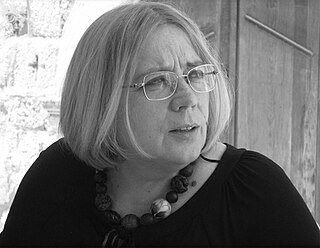 W
WNadežda Čačinovič is a Croatian philosopher, sociologist, comparatist, feminist and Croatian-language book author.
 W
WClaudia Falconer Card was the Emma Goldman (WARF) Professor of Philosophy at the University of Wisconsin–Madison, with teaching affiliations in Women's Studies, Jewish Studies, Environmental Studies, and LGBT Studies.
Chung Chil-sung (1897–1958), also known by her pen name Geumjuk, was a Korean dancer, feminist, and independence activist.
 W
WPatricia Hill Collins is an American academic specializing in race, class, and gender. She is a Distinguished University Professor of Sociology at the University of Maryland, College Park. She is also the former head of the Department of African-American Studies at the University of Cincinnati, and a past President of the American Sociological Association. Collins was the 100th president of the ASA and the first African-American woman to hold this position.
 W
WMarie Jean Antoine Nicolas de Caritat, Marquis of Condorcet, known as Nicolas de Condorcet, was a French philosopher and mathematician. His ideas, including support for a liberal economy, free and equal public instruction, constitutional government, and equal rights for women and people of all races, have been said to embody the ideals of the Age of Enlightenment and Enlightenment rationalism. He died in prison after a period of flight from French Revolutionary authorities.
 W
WAlice Crary is an American philosopher who currently holds the positions of University Distinguished Professor at the Graduate Faculty, The New School for Social Research in New York City and Visiting Fellow at Regent's Park College, University of Oxford, U.K..
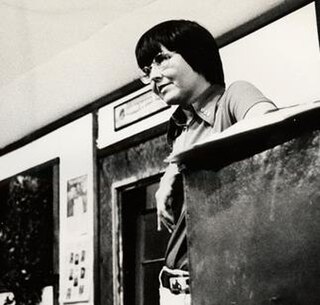 W
WMary Daly was an American radical feminist philosopher, academic, and theologian. Daly, who described herself as a "radical lesbian feminist", taught at the Jesuit-run Boston College for 33 years. Daly retired in 1999, after violating university policy by refusing to allow male students in her advanced women's studies classes. She allowed male students in her introductory class and privately tutored those who wanted to take advanced classes.
 W
WAngela Yvonne Davis is an American political activist, philosopher, academic and author. She is a professor at the University of California, Santa Cruz. Ideologically a Marxist, Davis was a longtime member of the Communist Party USA (CPUSA) and is a founding member of the Committees of Correspondence for Democracy and Socialism (CCDS). She is the author of over ten books on class, feminism, race, and the US prison system.
 W
WRaya Dunayevskaya, later Rae Spiegel, also known by the pseudonym Freddie Forest, was the American founder of the philosophy of Marxist humanism in the United States. At one time Leon Trotsky's secretary, she later split with him and ultimately founded the organization News and Letters Committees and was its leader until her death.
 W
WBracha Lichtenberg Ettinger is an Israeli-born French and Israeli artist, visual analyst, psychoanalyst, philosopher, painter and writer.
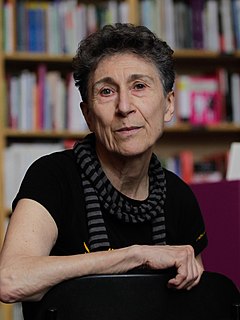 W
WSilvia Federici is an Italian and American scholar, teacher, and activist from the radical autonomist feminist Marxist and anarchist tradition. She is a professor emerita and Teaching Fellow at Hofstra University, where she was a social science professor. She worked as a teacher in Nigeria for many years, is also the co-founder of the Committee for Academic Freedom in Africa, and is a member of the Midnight Notes Collective.
 W
WFrançois Marie Charles Fourier was a French philosopher, an influential early socialist thinker and one of the founders of utopian socialism. Some of Fourier's social and moral views, held to be radical in his lifetime, have become mainstream thinking in modern society. For instance, Fourier is credited with having originated the word feminism in 1837.
 W
WNancy Fraser is an American philosopher, critical theorist, feminist, and the Henry A. and Louise Loeb Professor of Political and Social Science and professor of philosophy at The New School in New York City. Widely known for her critique of identity politics and her philosophical work on the concept of justice, Fraser is also a staunch critic of contemporary liberal feminism and its abandonment of social justice issues. Fraser holds honorary doctoral degrees from four universities in three countries, and won the 2010 Alfred Schutz Prize in Social Philosophy from the American Philosophical Association. She is President of the American Philosophical Association Eastern Division.
 W
WMiranda Fricker, FBA is an English philosopher who is currently Presidential Professor of Philosophy at the City University of New York Graduate Center. Fricker coined the term epistemic injustice, the concept of an injustice done against someone "specifically in their capacity as a knower", and explored the concept in her 2007 book Epistemic Injustice.
 W
WCarol Gilligan is an American feminist, ethicist and psychologist best known for her work on ethical community and ethical relationships and certain subject-object problems in ethics.
 W
WMarina Gržinić is a philosopher, theoretician and artist from Ljubljana. She is a prominent contemporary theoretical and critical figure in Slovenia. Since 1993 she is employed at the Institute of Philosophy at the Scientific and Research Center of the Slovenian Academy of Science and Arts. Today, she serves as a professor and research adviser. For her scientific work, she has received the Golden SASA sign in 2007. Since 2003, she has also served as Full Professor at the Academy of Fine Arts in Vienna, Austria. She publishes extensively, lectures worldwide, and is involved in video art since 1982.
 W
WNancy C. M. Hartsock (1943–2015) was a professor of Political Science and Women Studies at the University of Washington in 1984.
 W
WSally Haslanger is an American philosopher and professor. She is the Ford Professor of Philosophy in the Department of Linguistics and Philosophy at the Massachusetts Institute of Technology. She held the 2015 Spinoza Chair of Philosophy at the University of Amsterdam.
 W
WVirginia Potter Held is an American moral, social/political and feminist philosopher whose work on the ethics of care sparked significant research into the ethical dimensions of providing care for others and critiques of the traditional roles of women in society.
 W
WCarl Hilty was a Swiss philosopher, professor, politician, writer, and lawyer. He famously said: "Peace is only a hair's breadth away from war." Although a Christian, he was no pacifist, and expected the coming world war. He also served as a high officer in the Swiss Army. He was married to a German wife named Johanna Gaertner. Hilty was a spokesman for women's rights to vote and to be elected, several decades before the subject became mainstream. Hilty argued that Switzerland, as a nation-state comprising several nationalities and languages, had a unique mission of demonstrating that a nation-state could transcend tribal tendencies.
 W
WTamara Horowitz was an American philosopher who worked on epistemology, feminist philosophy and the philosophy of science. She spent much of her career at the University of Pittsburgh, and was appointed chair of the philosophy department there in September 1999, but died a few months later.
 W
WSonia Ann Johnson, is an American feminist activist and writer. She was an outspoken supporter of the Equal Rights Amendment (ERA) and in the late 1970s was publicly critical of the position of The Church of Jesus Christ of Latter-day Saints, of which she was a member, against the proposed amendment. She eventually was excommunicated from the church for her activities. She went on to publish several radical feminist books, ran for president in 1984, and become a popular feminist speaker.
 W
WHelen Elizabeth Longino is an American philosopher of science who has argued for the significance of values and social interactions to scientific inquiry. She has written about the role of women in science and is a central figure in feminist epistemology and social epistemology. She is the Clarence Irving Lewis Professor of Philosophy at Stanford University. In 2016, she was elected to the American Academy of Arts and Sciences.
 W
WPatricia McFadden is a radical African feminist, sociologist, writer, educator, and publisher from eSwatini. She is also an activist and scholar who worked in the anti-apartheid movement for more than 20 years. McFadden has worked in the African and global women’s movements as well. As a writer, she has been the target of political persecution. She has worked as editor of the Southern African Feminist Review and African Feminist Perspectives. She currently teaches, and advocates internationally for women's issues. McFadden has served as a professor at Cornell University, Spelman College, Syracuse University and Smith College in the United States. She also works as a "feminist consultant", supporting women in creating institutionally sustainable feminist spaces within Southern Africa.
 W
WAna de Miguel Álvarez is a Spanish philosopher and feminist. Since 2005 she has been a titular professor of Moral and Political Philosophy at King Juan Carlos University of Madrid. She directs the course History of Feminist Theory at the Complutense University of Madrid's Feminist Research Institute.
 W
WJohn Stuart Mill, usually cited as J. S. Mill, was an English philosopher, political economist, Member of Parliament, and civil servant. One of the most influential thinkers in the history of classical liberalism, he contributed widely to social theory, political theory, and political economy. Dubbed "the most influential English-speaking philosopher of the nineteenth century", he conceived of liberty as justifying the freedom of the individual in opposition to unlimited state and social control.
 W
WMihaela Miroiu is a Romanian political theorist and feminist philosopher and the most prominent activist for women's rights and a very well known activist for Roma rights, more generally, for minorities rights. She is currently Professor of Political science at the Faculty of Political Science, National University of Political Studies and Public Administration, Bucharest.
 W
WNina Karin Monsen is a Norwegian moral philosopher and author. She has written several books, both non-fiction and fiction, and has been active in Norwegian public debate since the early 1970s.
 W
WJudith Sargent Stevens Murray was an early American advocate for women's rights, an essay writer, playwright, poet, and letter writer. She was one of the first American proponents of the idea of the equality of the sexes—that women, like men, had the capability of intellectual accomplishment and should be able to achieve economic independence. Among many other influential pieces, her landmark essay "On the Equality of the Sexes" paved the way for new thoughts and ideas proposed by other feminist writers of the century.
 W
WErich Neumann, was a psychologist, philosopher, writer, and student of Carl Jung.
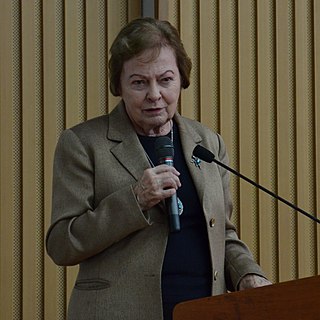 W
WNel Noddings is an American feminist, educator, and philosopher best known for her work in philosophy of education, educational theory, and ethics of care.
 W
WVal Plumwood was an Australian philosopher and ecofeminist known for her work on anthropocentrism. From the 1970s she played a central role in the development of radical ecosophy. Working mostly as an independent scholar, she held positions at the University of Tasmania, North Carolina State University, the University of Montana, and the University of Sydney, and at the time of her death was Australian Research Council Fellow at the Australian National University. She is included in Routledge's Fifty Key Thinkers on the Environment (2001).
 W
WMichèle Pujol, born in Madaoua, Niger, was a French intellectual, feminist, economist, scholar and human rights activist who lived in British Columbia, Canada. She was an assistant professor at the University of Victoria Department of Women's Studies and held the chair at the University of Manitoba. She was a significant feminist economic scholar and an advocate of social justice.
 W
WAlicia Helda Puleo García is an Argentine-born feminist philosopher based in Spain. She is known for the development of ecofeminist thinking. Among her main publications is Ecofeminismo para otro mundo posible.
 W
WJanet Radcliffe Richards is a British philosopher specialising in bioethics and feminism. She is the author of The Sceptical Feminist (1980), Philosophical Problems of Equality (1995), Human Nature after Darwin (2000), and The Ethics of Transplants (2012).
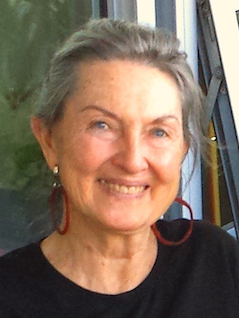 W
WAriel Salleh is an Australian sociologist who writes on humanity-nature relations, political ecology, social change movements, and ecofeminism.
 W
WDebra Satz is an American philosopher and the Vernon R. & Lysbeth Warren Anderson Dean of the School of Humanities and Sciences at Stanford University. She is the Marta Sutton Weeks Professor of Ethics in Society, Professor of Philosophy and Political Science. She teaches courses in ethics, social and political philosophy, and philosophy of social science.
 W
WHenry Sidgwick was an English utilitarian philosopher and economist. He was the Knightbridge Professor of Moral Philosophy at the University of Cambridge from 1883 until his death, and is best known in philosophy for his utilitarian treatise The Methods of Ethics. He was one of the founders and first president of the Society for Psychical Research and a member of the Metaphysical Society and promoted the higher education of women. His work in economics has also had a lasting influence. In 1875 he co-founded Newnham College, a women-only constituent college of the University of Cambridge. It was the second Cambridge college to admit women, after Girton College. Newnham College's co-founder was Millicent Garrett Fawcett. In 1856 Sidgwick joined the Cambridge Apostles intellectual secret society.
 W
WMiriam Solomon is Professor of Philosophy and Chair of the Philosophy Department as well as Affiliated Professor of Women's Studies at Temple University. Solomon's work focuses on the philosophy of science, social epistemology, medical epistemology, medical ethics, and gender and science. Besides her academic appointments, she has published two books and a large number of peer reviewed journal articles, and she has served on the editorial boards of a number of major journals.
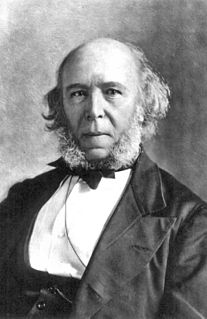 W
WHerbert Spencer was an English philosopher, biologist, anthropologist, and sociologist famous for his hypothesis of social Darwinism whereby superior physical force shapes history. Spencer originated the expression "survival of the fittest", which he coined in Principles of Biology (1864) after reading Charles Darwin's On the Origin of Species. The term strongly suggests natural selection, yet Spencer saw evolution as extending into realms of sociology and ethics, so he also supported Lamarckism.
 W
WGabrielle Suchon was a French moral philosopher who participated in debates about the social, political and religious condition of women in the early modern era. Her most prominent works are the Traité de la morale et de la politique and Du célibat volontaire.
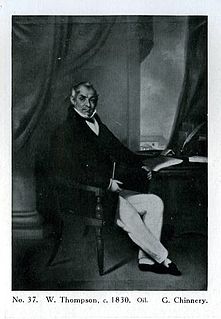 W
WWilliam Thompson was an Irish political and philosophical writer and social reformer, developing from utilitarianism into an early critic of capitalist exploitation whose ideas influenced the cooperative, trade union and Chartist movements as well as Karl Marx.
 W
WLynne Tirrell is Associate Professor of Philosophy at the University of Connecticut, where she is also affiliated with the Human Rights Institute. Much of the body of her work focuses on hate speech, especially the practical effects of linguistic practices in shaping the social conditions that make genocide and other significant acts of oppression possible. Her research started in the United States but quickly branched in to other regions of the world, and now focuses on Rwanda and the surrounding region. From 2014 to 2017, she also served as the chair of the APA Committee on Public Philosophy. Her current work develops an analysis of Toxic Speech, bringing philosophy and epidemiology into conversation.
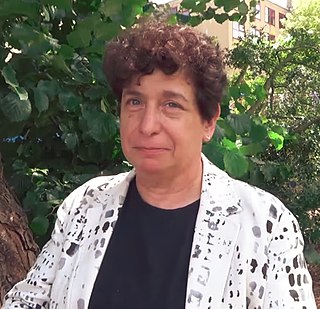 W
WJoan Claire Tronto, is professor of political science at the University of Minnesota, and was previously professor of women's studies and political science at Hunter College and the Graduate School, City University of New York.
 W
WJun Tsuji, later Ryūkitsu Mizushima , was a Japanese author: a poet, essayist, playwright, and translator. He has also been described as a Dadaist, nihilist, Epicurean, shakuhachi musician, actor, feminist, and bohemian. He translated Max Stirner's The Ego and Its Own and Cesare Lombroso's The Man of Genius into Japanese.
 W
WAmelia Valcarcel is a Spanish philosopher and feminist. She is considered within the “philosophic feminism” as part of the “equality feminism” approach. In 2015 she is a professor in Moral and Political Philosophy at the National University of Distance Education and since 2006 is member of the Spanish Council of State.
 W
WNicla Vassallo, is an Italian philosopher with research and teaching interests in epistemology, philosophy of knowledge, theoretical philosophy, as well as gender and sexuality studies. She is currently a Full Professor in the Department of Philosophy at the University of Genoa, Italy.
 W
WMonique Wittig was a French author, philosopher and feminist theorist who wrote about overcoming socially enforced gender roles and who coined the phrase "heterosexual contract". She published her first novel, L'Opoponax, in 1964. Her second novel, Les Guérillères (1969), was a landmark in lesbian feminism.
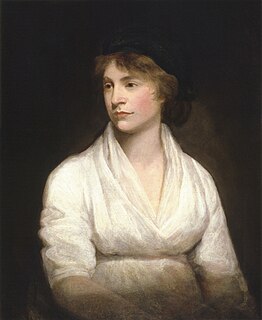 W
WMary Wollstonecraft was an English writer, philosopher, and advocate of women's rights. Until the late 20th century, Wollstonecraft's life, which encompassed several unconventional personal relationships at the time, received more attention than her writing. Today Wollstonecraft is regarded as one of the founding feminist philosophers, and feminists often cite both her life and her works as important influences.
 W
WIris Marion Young was an American political theorist and socialist feminist who focused on the nature of justice and social difference. She served as Professor of Political Science at the University of Chicago and was affiliated with the Center for Gender Studies and the Human Rights program there. Her research covered contemporary political theory, feminist social theory, and normative analysis of public policy. She believed in the importance of political activism and encouraged her students to involve themselves in their communities.
 W
WJamil Sidqi al-Zahawi was a prominent Iraqi poet and philosopher. He is regarded as one of the greatest contemporary poets of the Arab world and was known for his defence of women's rights.